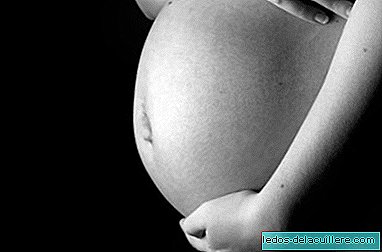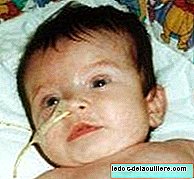
The implications that our intestines have on our health are so diverse that there are many investigations that are being done in this regard, both at the level of intestinal flora and its relationship with the immune system, as well as its relationship with tolerance or intolerance to some food.
One of the best known intolerances is the gluten, not only because 1% of the population suffers from it, but because of what it entails both at the health level and at the social and economic level. Well, it is possible that science has taken a big step in understanding this disease, and they have discovered that celiac disease could be the consequence of an asymptomatic viral infection.
It is not yet known why it is due
One of the signs of the lack of clear evidence regarding gluten is the variation in recommendations on the best time to introduce it in the diet of babies. I remember that a few years ago it was said that the baby had to be at least 8 or 9 months, and if there was a family history, it would be delayed until the year or more.
Then it was said that better between 4 and 7 months, starting with a small amount and if it could be while the baby was breastfed. And now that you know that starting with a small amount or breastfeeding is not a benefit, the recommendation is to start at six months as with other foods, with the only warning of don't hit too much at first.
Thus, until perhaps in a few years new rules are written based on new evidence, as more things related to celiac disease are discovered.
It could be the consequence of a virus
And this is the novelty that we tell you today. As we read on ABC, researchers at the University of Chicago have found a possible cause of celiac disease in a virus known as "reovirus." The cause of all cases? Impossible to know; but in all likelihood, the cause of some of them.
The research, which has been published in the journal Science, shows the behavior of two types of reovirus in infected mice, observing changes in the intestine's ability to tolerate gluten.
Apparently, it's about a type of virus that goes without symptoms. Our immune system is able to control its action and we do not suffer any apparent discomfort. In fact, by itself it does not involve any change. The problem appears when the infection happens in the presence of gluten in the diet. Depending on the state of health of the person, their predisposition to suffer from celiac disease (there is a genetic predisposition) and how the virus behaves once infected, it can occur a gluten intolerance.
Demonstrated with mice
To reach these conclusions, the authors administered two different strains of reovirus to healthy mice: T1l, which mostly affects the small intestine, and the T3D, which usually infect other organs not related to the digestive system.
They saw that the infection with the two strains of the virus caused the body's response preventing the spread of the virus and the associated symptoms (the mice did not suffer any disease). However, mice infected with TL1 They suffered an important inflammatory response when consuming gluten-free foods. This response produced an overexpression of the gene IRF1, which causes the loss of gluten tolerance.

When studying people with gluten intolerance, it was observed that they had much higher levels of antibodies against reovirus than people who do not have intolerance. This means that they probably suffered, without knowing it, an infection by said virus that could be the cause of celiac disease.
A possible vaccine against reovirus
This discovery opens a new way of investigation to know more specifically what is the possible relationship between reovirus infection and celiac disease (how many infected babies or children can end up being celiac), and vice versa, how many people with celiac disease are the fault of said virus, and not for another possible cause.
If in the end it was confirmed, for example, that the majority of people with celiac disease suffer from this type of virus, the development of a vaccine could mean a real revolution in the disease control, avoiding infection would prevent subsequent celiac disease.
But this is already to play with hypotheses that we do not know, and consider that the vaccine was effective and no more dangerous than the probability of having celiac disease at some point in life.
Photos | iStock
In Babies and more | Living without gluten: celiac disease and children, It is diagnosed more than ever and yet it is estimated that there are 75% of undiagnosed patients: National Celiac Disease Day, The special guide for allergy sufferers is published: Celiac, what a word so weird!












